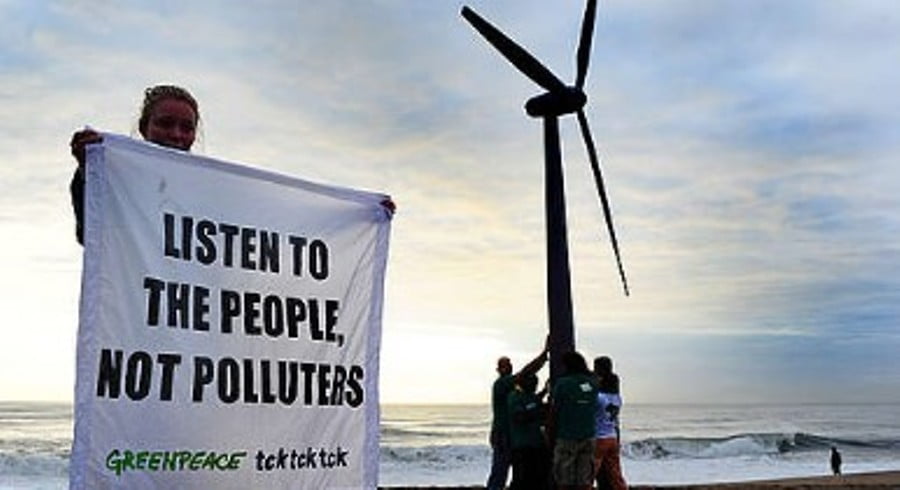Ahead of the Africa Climate Summit, Greenpeace Africa has called on African governments to act now to minimize the devastating impacts of the climate crisis on the livelihoods of Africans. In a letter sent to the secretariat of the summit, the organization is warning against turning Africa into the frontier of a new scramble for oil, gas and coal, driven by former colonial powers.
As East Africa is reeling from its worst drought on record, extreme heat and wildfires are ravaging northern Africa and flash floods are hitting countries across the continent. The science is clear on what drives the climate crisis: long-term shifts in temperatures and weather patterns caused by greenhouse gas emissions that blanket the Earth and trap the sun’s heat. This crisis would not happen without human activities like the extraction and burning of fossil fuels such as coal, oil and gas.
“While greedy corporations continue to scramble for Africa’s coal, oil and gas, more severe and frequent floods and droughts are shattering communities across the continent. This human-induced climate crisis will only become more catastrophic if we collectively fail to act,” said Greenpeace Africa’s Executive Director, Dr. Oulie Keita.
Extreme weather events – droughts, floods and landslides are leading to grave impacts on farming and crop harvests, as seen in the worst drought on record a few months ago in Kenya. This has severe knock-on effects on food security, and causes rising food prices, which the people living in Africa can ill afford.
“Africa’s dependence on fossil fuel-powered energy is stealing our future and leading us to an ever-worsening climate disaster. Africa has the potential to build greener and better than previous generations did if we act now together. We have a collective responsibility and the power to minimize the harms of the climate crisis,” continued Dr. Keita.
“Our governments and leaders must have the courage to reimagine an alternative future and chart a new developmental path away from the destructive models of the West; a path that prioritizes people and the planet over profit. This summit is an opportunity for genuine dialogue, where our leaders, civil society organizations, scientists, youth activists, and other stakeholders can assert our perspectives, needs and solutions,” added Dr. Keita.
According to the World Bank, an estimated 600 million people in Sub-Saharan Africa have limited to no access to electricity, and renewable energy has the potential to deliver distributed energy access to all. Instead of pushing for the continued extraction of dead-end fossil fuels, Africa can lead the world in a just transition to 100% renewable, secure and affordable energy, which empowers communities and workers. Renewable energy technology has grown by leaps and bounds in recent years, becoming the cheapest form of energy, also generating a boom in employment.
“Greenpeace Africa calls for Africa’s leaders to avoid falling into the fossil fuel trap and lead the continent towards a clean, renewable, affordable and sustainable energy future. We need policies that incentivize investments in the continent’s exceptionally high potential for decentralized renewable energy,” concluded Dr. Keita.

